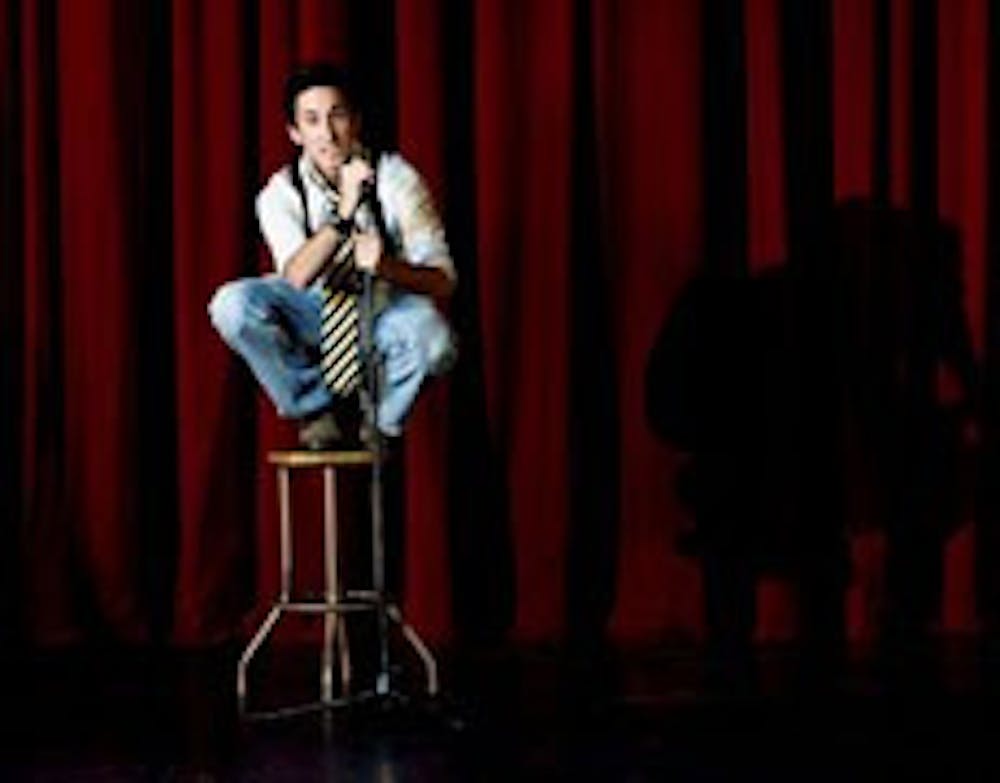As almost everybody knows, a good sense of humor is a major turn-on. Cracking a joke can make even the dullest of situations entertaining, regardless of the setting.
So what do you do if your jokes are continuously met with dead silence? Instead of losing hope, read on for tips that will help you get your funny bone working properly.
Be a good observer
Trying to replicate Will Ferrell's sarcasm may not be your best bet at making the people around you laugh. Recognizing what kind of humor works for you is essential to delivering a good joke, says English linguistics professor Don Nilsen. Nilsen and his wife, English professor Alleen Nilsen, have studied humor for more than 25 years. Together they have written 15 books on the subject, including "The Encyclopedia of Humor."
To find out what kind of humor you can do best, "try and try and try until you find something that works," says Brian Rhoads, a cast member of ASU's sketch comedy performing group, the Farce Side Comedy Hour. "I'm constantly testing new things, new clothes and new attitudes," the undeclared sophomore adds.
Know your audience
Adam Sandler's jokes may crack you and your buddies up when you're lounging around in a hangover daze. But what's appropriate with your close friends isn't suitable in all situations.
That means a joke fit for your classmates isn't always that funny to your boss and co-workers. This is why it's important to be aware of your audience.
"The rule we have is that the more offensive it could possibly be, the smarter and more well-done it has to be," says Kevin Horst, communications junior and writing director for the Farce Side Comedy Hour. It's important to put thought into jokes that cover sensitive topics to avoid looking like you're "just going for the cheap shot," Horst says.
"But that doesn't mean we shouldn't use targeted jokes and satire," Don Nilsen adds. He advises that jokesters follow the Humane Humor Rules. They include never targeting a victim or attacking something that can't be changed, like a disability. The Rules also say to avoid targeting a person's weaknesses, and instead to focus on their strengths. "By targeting their strengths, you're making them better than they are," Don Nilsen says. "You're saying, 'You're strong enough to handle a little teasing.'"
Deliver it well
Because your friends aren't being paid to listen to you, the way you deliver a joke has a lot to do with how it is received. "It's all about delivery and timing and style," Rhoads says. "If you're excited to tell a joke, [your audience] will feel entertained," he says.
In fact, a joke's success may depend more on how you tell it than what you actually say. "Some people say that the actual words of a joke [are] only 10 percent of what makes it funny. The other 90 percent is the body language and the nonverbal communication," sociology senior Corey Abramowitz says in an e-mail. Abramowitz has taken improv classes with his brother, a comedian. "To actually be funny, you must animate yourself and learn to tell damn good stories using more than just words," he adds.
And if your jokes fall flat, don't ever stop making an effort. "Once people can tell you've given up on a joke, they will stop listening," Rhoads says.
Learn from the best
If your jokes are still met with silent stares from your audience, don't give up. There's no better way to learn some inside tricks than to watch the experts of comedy in person. The Phoenix Improv Festival is a four-day event in May featuring local and nationwide improv acts, including ASU's own Barren Mind group, says Bill Binder, the executive producer of the festival.
If you'd rather have someone tell you how to perform, the festival will also feature public workshops for those with a bit of improv experience. The workshops cost $30 to $50 and are taught by professional improv and comedic performers. For more information, visit phoeniximprovfestival.com.
If you go
Phoenix Improv Festival
May 10-13
Performances $10-$15
(480) 251-3697
Reach the reporter at: nicole.stewart@asu.edu.




